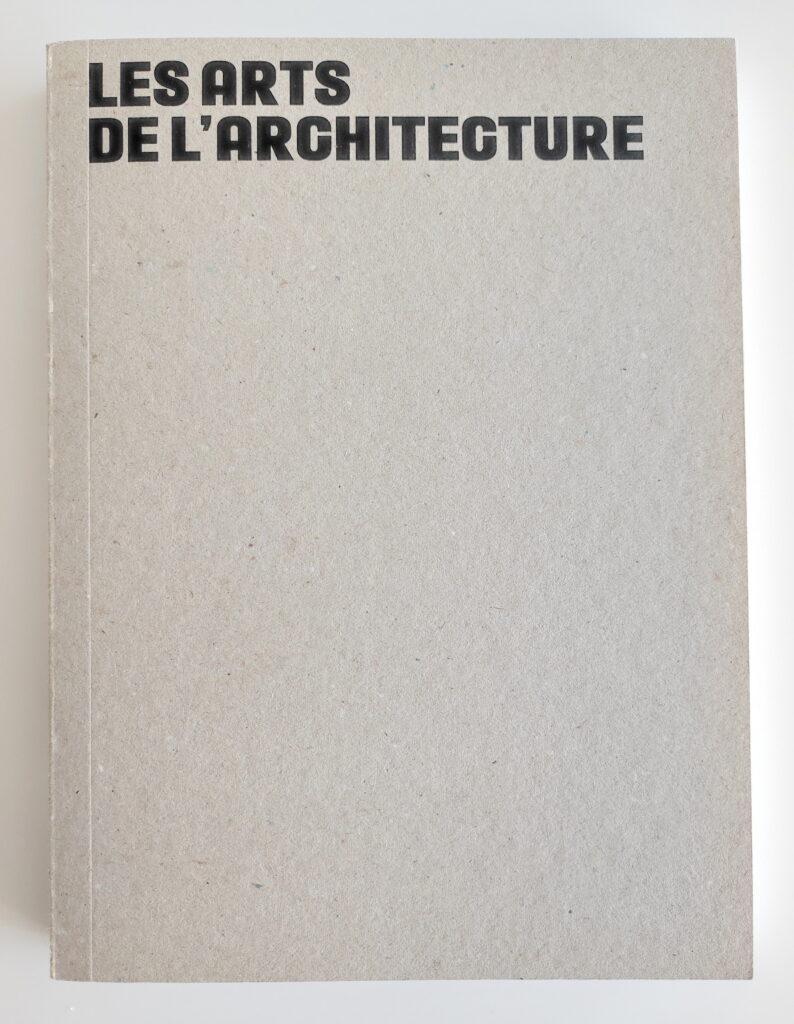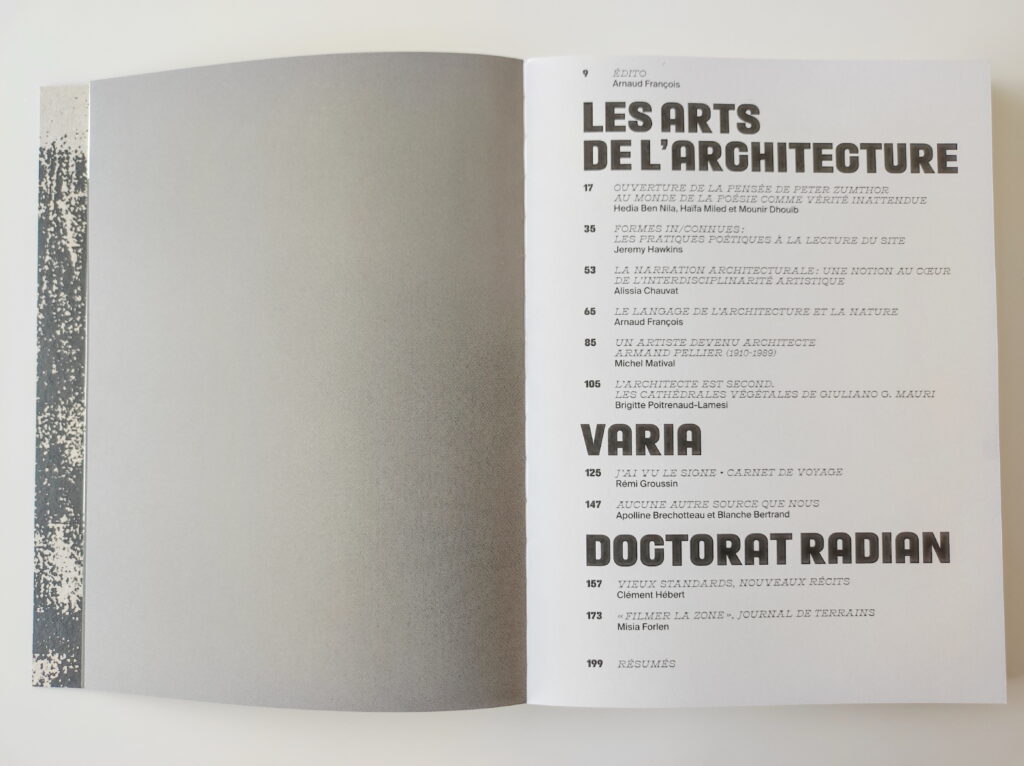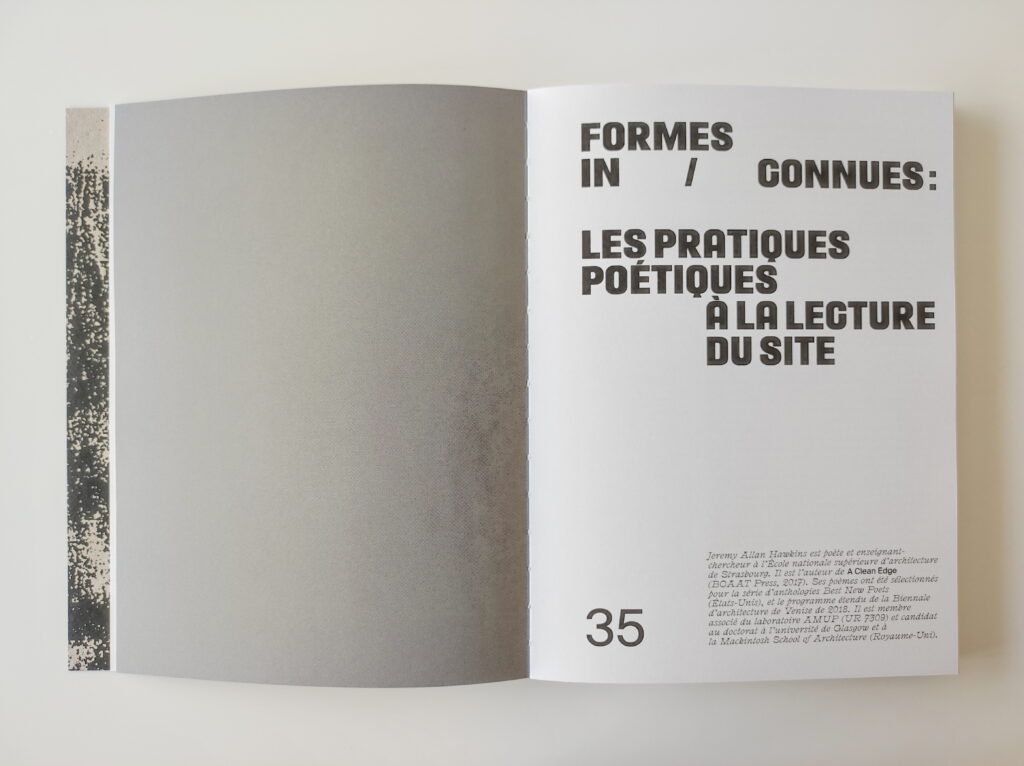
Early this summer, my first single-authored academic article appeared in the French architectural & arts journal, Radial 4, a publication produced in liaison with the RADIAN doctoral program, itself a collaboration between three higher education institutions: l’École supérieure d’art et design Le Havre-Rouen, l’école supérieure d’arts & médias de Caen/Cherbourg and l’École nationale supérieure d’architecture de Normandie. My new article, “Formes in/connues: les pratiques poétiques à la lecture du site,” corresponds to a consistent interest in poetics throughout the special issue, dedicated to the arts in architecture and architectural education and research.
It’s strange to admit that I have been working in higher education for almost 18 years, and in certain ways odd to realize that most of that time my activities have been research-adjacent. I have taught academic writing, contributed to research programs, and supported research work of the institutions with which I have been affiliated, but in some ways this feels like a first step in a transition towards another phase in my career. Other news that I’ll be sharing soon could be seen to reinforce that narrative. I suppose the truest version of this story would not be one in which I become a “full-fledged research academic,” since I think there is something both wrong and damaging about such categorical views (who is a real researcher, the gatekeepers ask). Rather, it would be better to say I am finally embracing a more hybrid status, where creative production and practice interact more explicitly and deliberately with research activity and knowledge production. That’s not a bad story, though it reeks a bit of self-improvement.

An alternative narrative would perhaps take better account of the professional and social pressures to legitimate oneself by publishing academic writing. In a sense, especially if we put this through the implications of the fact that I was publishing in France, in French, there are ways in which my article is a claim to legitimacy in academic milieux. One could read this article as flag-planting too, claiming intellectual territory, informing peers and colleagues “Au passage, je suis là, et c’est moi qui travaille sur la poétique en projet !” It would be deceitful not to admit that much of my career in France has left me feeling overlooked by institutions who are unable to assign value to products of other institutions, let alone non-traditional situations. What’s a poet in higher education in France? Or anywhere.
There are other possible narratives, but as I reflect on getting my feet wet in the bottomless sea of academic research, it’s worth noting that the most important aspect of my article is that it positions itself by taken pedagogical activity seriously and puts forward student production as valuable research materials. In short, the article presents and analyzes the outcome of a practice-based pedagogical experiment. In a course I taught at the Strasbourg National School of Architecture, master’s students used poetic experiments to try to produce new knowledge about spatial situations, particularly about architectural project sites. The article questions the value of such experiments in producing new spatial knowledge at this early phase in the architectural design process. You can download a PDF of the entire issue for free, though some French language skills may be helpful.
One more narrative, maybe fairer to myself, is one in which I’m not a hero-protagonist. I send my deep and heartfelt gratitude to the (former) students whose work contributed directly to this research — Tulay Emeriau, Aimeric Gauzlin, Soukaïna Lahlou, Miora Rakotomalala — as well as the others from my course on Pratiques Poétiques, whose work was not cited but who contributed to the outcomes all the same.
